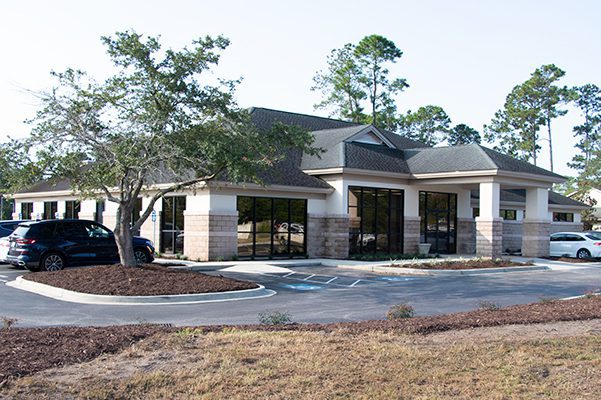Prostate Cancer: Understanding Your PSA Levels and First Steps to Checking Your Prostate Health
When it comes to men’s health, prostate cancer ranks as one of the most critical issues, especially as men age. The American Cancer Society highlights that prostate cancer is the second most common cancer among men, following skin cancer, with approximately 1 in 8 men diagnosed during their lifetime. The CMC Godwin Healing Center at Conway Medical Center is committed to offering comprehensive care and education, helping men take proactive steps in monitoring and managing their prostate health.
What is Prostate Cancer?
Prostate cancer originates in the prostate gland, a walnut-sized organ located below the bladder and in front of the rectum. The prostate is responsible for producing seminal fluid, which nourishes and transports sperm. Prostate cancer occurs when cells in the prostate gland begin to grow uncontrollably. While the exact cause is not fully understood, risk factors include age, family history, race, and lifestyle.
Types of Prostate Cancer
- Adenocarcinomas: The vast majority of prostate cancers are adenocarcinomas, which develop in the gland cells that make prostate fluid.
- Other Types: While rare, other types of cancer can start in the prostate, including small cell carcinomas, neuroendocrine tumors, and transitional cell carcinomas.
Stages of Prostate Cancer
Prostate cancer is categorized into different stages, which describe how far the cancer has spread:
- Stage I: Cancer is confined to the prostate and is usually found incidentally during surgery for another condition. It is typically slow-growing.
- Stage II: Cancer is still within the prostate but may be more likely to grow and spread.
- Stage III: Cancer has spread beyond the outer layer of the prostate to nearby tissues.
- Stage IV: Cancer has spread to other parts of the body, such as the bladder, rectum, bones, or lymph nodes.

READ MORE:
What are the Stages of Cancer?
Staging is one of the preliminary steps that provide a clearer picture of what to anticipate and how to proceed with a cancer diagnosis.
Understanding PSA Levels
The Prostate-Specific Antigen (PSA) test is a vital tool in the early detection of prostate cancer. PSA is a protein produced by both normal and malignant cells of the prostate gland. The PSA test measures the concentration of this protein in the blood.
Interpreting PSA Levels
According to the National Cancer Institute (NCI), there is no single normal or abnormal level of PSA in the blood. PSA levels can fluctuate due to a number of factors, including age, prostate gland size, inflammation, infection, ejaculation, and vigorous exercise. Some drugs, like finasteride and dutasteride, can also lower PSA levels.
- Normal Range: A PSA level under 4.0 ng/mL is generally considered normal. However, PSA levels tend to increase naturally with age. For example:
- Men in their 40s and 50s typically have PSA levels below 2.5 ng/mL.
- Men in their 60s or older may have PSA levels slightly higher due to the natural enlargement of the prostate.
- Elevated PSA Levels: A PSA level between 4.0 and 10.0 ng/mL is considered borderline and may necessitate further investigation, such as repeat testing or additional diagnostic procedures.
- High PSA Levels: PSA levels above 10.0 ng/mL raise a strong suspicion for prostate cancer. In such cases, a biopsy may be recommended to confirm the presence of cancerous cells.
It is important to understand that PSA levels alone do not diagnose prostate cancer. Other factors, including age, race, family history, and the results of a digital rectal exam (DRE), must be considered when assessing prostate cancer risk.
First Steps to Checking Your Prostate Health
1. Schedule a PSA Test
The PSA test is the first step in assessing your prostate health. This simple blood test can be conveniently ordered by your primary care provider. If you do not have a PCP, CMC has many providers at convenient locations across Horry and Georgetown counties who are accepting patients and can assist you with a variety of annual physicals.
2. Consult with a Specialist
If your PSA levels are elevated, or if you have a strong family history of prostate cancer, it is crucial to consult with a urologist. The specialists at CMC Godwin Healing Center can guide you through additional testing and discuss the best course of action based on your results.

3. Undergo Additional Screening:
In addition to the PSA test, a Digital Rectal Exam (DRE) can provide more detailed information about the size, shape, and texture of the prostate. While it may be uncomfortable, this exam is an essential tool for detecting abnormalities that may not be apparent through PSA levels alone.
4. Adopt a Healthy Lifestyle
Proactive lifestyle changes can significantly impact prostate health. A balanced diet rich in fruits and vegetables, regular exercise, and avoiding tobacco can reduce the risk of prostate issues. The healthcare providers at Conway Medical Center can offer personalized advice on maintaining a healthy lifestyle.
Treatment Options for Prostate Cancer
If you are diagnosed with prostate cancer, understanding your treatment options is critical. Treatment plans are tailored to the stage of cancer, your overall health, and your preferences. Here are the most common treatment options available
1. Active Surveillance
For men with low-risk, early-stage prostate cancer, active surveillance may be recommended. This approach involves regular monitoring of PSA levels, DREs, and occasional biopsies to track the progression of cancer. If the cancer shows signs of growth, more aggressive treatment options may be considered.
2. Surgery (Prostatectomy)
- Radical Prostatectomy: This surgery involves the complete removal of the prostate gland and some surrounding tissue. It is often recommended for men with localized prostate cancer that has not spread beyond the prostate.
- Minimally Invasive Surgery: Advances in technology have allowed for minimally invasive techniques, such as robotic-assisted prostatectomy, which can reduce recovery time and minimize side effects.
3. Radiation Therapy
Radiation therapy uses high-energy rays to target and kill cancer cells. It can be delivered in two primary ways:
- External Beam Radiation Therapy (EBRT): This is the most common type, where radiation is directed at the prostate from outside the body.
- Brachytherapy: This involves implanting radioactive seeds directly into the prostate, delivering a high dose of radiation to the cancer cells with minimal impact on surrounding tissues.
4. Hormone Therapy (Androgen Deprivation Therapy)
Prostate cancer cells often rely on male hormones (androgens) like testosterone to grow. Hormone therapy aims to reduce or block the production of these hormones, slowing the growth of cancer. This treatment is often used in advanced or recurrent prostate cancer.
5. Chemotherapy
Chemotherapy may be recommended for men with advanced prostate cancer that has spread to other parts of the body. It involves the use of drugs to kill rapidly dividing cancer cells. Chemotherapy is typically used when hormone therapy is no longer effective.
6. Immunotherapy
Immunotherapy helps the body’s immune system recognize and attack cancer cells. Sipuleucel-T (Provenge) is an FDA-approved immunotherapy for prostate cancer, designed to treat advanced prostate cancer that is no longer responding to hormone therapy.
7. Targeted Therapy
Targeted therapy focuses on specific genetic changes in cancer cells. PARP inhibitors, such as olaparib, are used in some cases of prostate cancer with specific genetic mutations. These drugs target cancer cells while sparing normal cells, leading to fewer side effects.
8. Clinical Trials
Participation in clinical trials offers access to cutting-edge treatments and therapies that are not yet widely available. The CMC Godwin Healing Center can connect you with clinical trials that may be appropriate for your condition.

READ MORE:
What is Chemotherapy?
Learn more about this powerful tool to fight cancer and the challenges it can cause.
The Role of CMC Godwin Healing Center in Prostate Health
At the CMC Godwin Healing Center, patients benefit from a multidisciplinary team of experts dedicated to providing personalized cancer care. Our center is equipped with state-of-the-art technology and a patient-centered approach to ensure the best possible outcomes and we are the gateway to a variety of other services to ensure you have the most comprehensive care possible.
Comprehensive Care
The CMC Godwin Healing Center offers a wide range of services, including screenings, diagnostics, and various treatment options tailored to the individual needs of each patient. Our approach is holistic, addressing not just the physical aspects of prostate cancer but also the emotional and psychological impacts.
Support and Resources
Beyond medical treatment, our center provides a wealth of resources, including support groups, nutritional counseling, and access to the latest research in prostate cancer care. These resources are designed to empower our patients and their families, helping them navigate the complexities of prostate cancer with confidence.
It can be difficult to understand or think about things like your prognosis, treatment, and other day-to-day struggles you may have while also battling prostate cancer. That’s why the CMC Cancer Center offers an All Cancers Support Group and other services and resources to help talk you through it, offer support, provide guidance, or simply just listen.
Prostate cancer is a significant health issue that requires proactive management. Understanding your PSA levels and taking early steps to check your prostate health are crucial in catching potential issues before they become serious. With the expert care provided by the CMC Godwin Healing Center, you can be assured of receiving the highest quality care, whether you are seeking preventive measures or advanced treatment options.
For more information, CLICK HERE.





